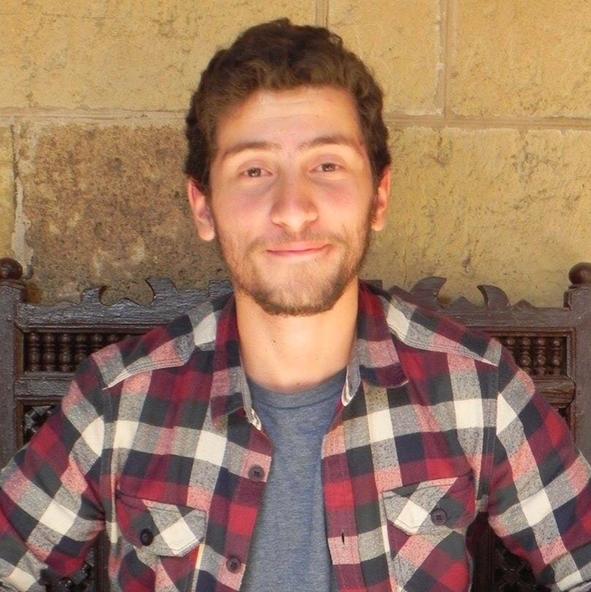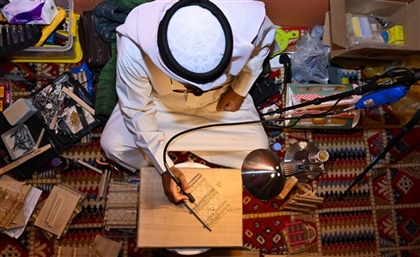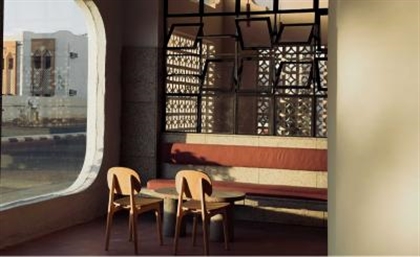Made in Bethlehem: Wonder Cabinet’s Modern Palestinian Designs
In Bethlehem, under the steel sign of Wonder Cabinet, these designers and artists are trying to create a foundation for future experimentation.
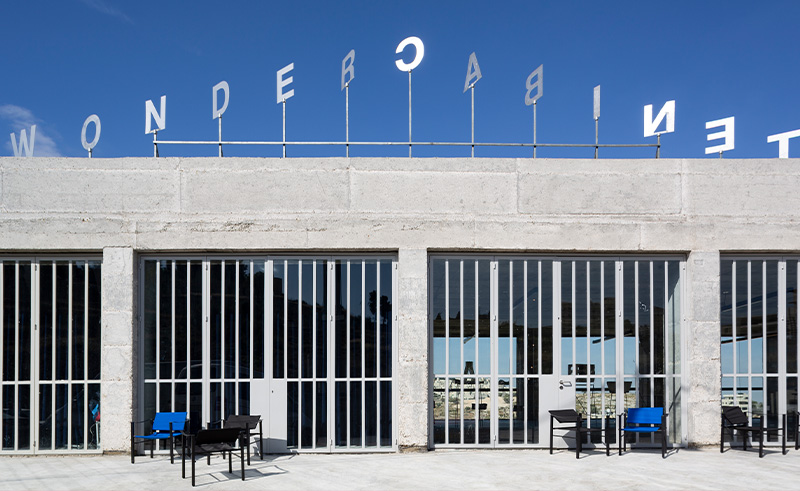
In the ancient Palestinian city of Bethlehem, amidst the echoes of historic craftsmanship, stands Wonder Cabinet - a not-for-profit production and cultural hub pulsating with contemporary innovation. Designed by Palestinian architects Elias and Yousef Anastas of AAU Anastas, this centre, cloaked in raw concrete, embodies a bold vision to nurture craft, design and artistic exploration.
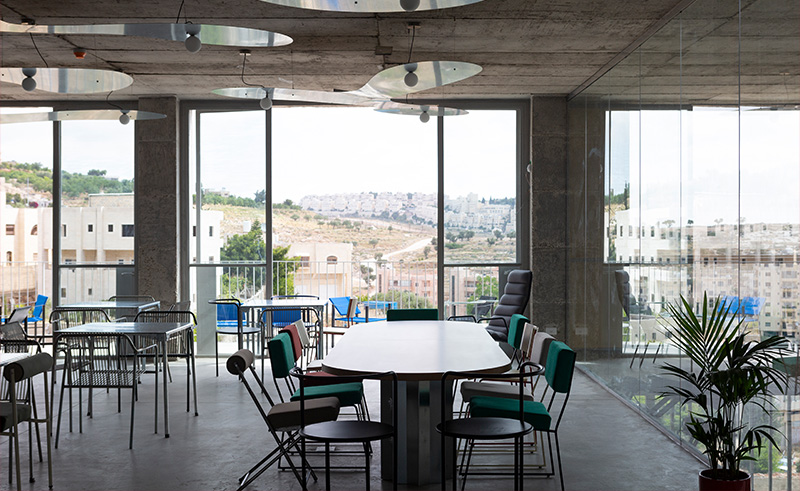
Stepping into Wonder Cabinet, you’re greeted by a dynamic fusion of spaces, from AAU Anastas’s design studio and the product design showcase of Local Industries to the sound waves emanating from Radio Alhara, art residency space and on-site restaurant. Here, artisanal footsteps intertwine with the hum of machinery, where the past and present converge.
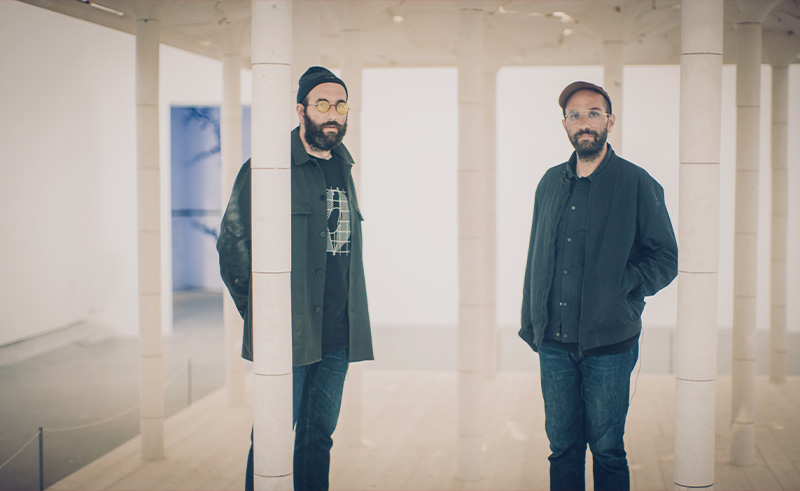 The genesis of Wonder Cabinet traces back to a fortuitous voyage embarked by the Anastas brothers atop the hills of Karkafeh valley, which first led them to the foundation of Local Industries in 2011. “Our journey began amidst the bustle of construction sites, where every interaction became a lesson in collaboration and shared knowledge,” Elias Anastas tells SceneHome.
The genesis of Wonder Cabinet traces back to a fortuitous voyage embarked by the Anastas brothers atop the hills of Karkafeh valley, which first led them to the foundation of Local Industries in 2011. “Our journey began amidst the bustle of construction sites, where every interaction became a lesson in collaboration and shared knowledge,” Elias Anastas tells SceneHome.
 Their quest led them to repurpose an abandoned factory, once a bastion of steel bed production for the Jordanian army, into a thriving centre for design and art production where the boundaries between disciplines blur, giving rise to a new paradigm of creativity.
Their quest led them to repurpose an abandoned factory, once a bastion of steel bed production for the Jordanian army, into a thriving centre for design and art production where the boundaries between disciplines blur, giving rise to a new paradigm of creativity.
 The brothers Anastas were working between Paris and Bethlehem, and in 2011 they won a competition to design a music school. A couple of months before the project they were told that the money was no longer there and were asked to finish their design with a reduced budget. But they came out of the situation with a completely different trajectory.
The brothers Anastas were working between Paris and Bethlehem, and in 2011 they won a competition to design a music school. A couple of months before the project they were told that the money was no longer there and were asked to finish their design with a reduced budget. But they came out of the situation with a completely different trajectory.
“Our idea was to work with the people involved in the construction,” Youssef Anastas says of the site, which eventually became a prototyping facility. “We were cross-pollinating knowledge and know-how, learning a lot from each other. So, we extended this network and interacted with different workshops across the city. Once it started to come together we thought about having a space where all these makers can collaborate.”
 Enter what was once a steel beds factory scarred by illegal occupation and apartheid. “We found this factory that dates back to the 1950s,” Elias recalls. “It used to produce steel beds for the Jordanian army and, after the war, it transitioned to crafting furniture for schools and gymnasiums.” However, the factory’s fate was to be altered irreversibly. “The apartheid wall reached this area in the West Bank in 2004. The owner lost a huge part of his land and access became difficult. The factory, which employed 120 workers, was forced to shut down.”
Enter what was once a steel beds factory scarred by illegal occupation and apartheid. “We found this factory that dates back to the 1950s,” Elias recalls. “It used to produce steel beds for the Jordanian army and, after the war, it transitioned to crafting furniture for schools and gymnasiums.” However, the factory’s fate was to be altered irreversibly. “The apartheid wall reached this area in the West Bank in 2004. The owner lost a huge part of his land and access became difficult. The factory, which employed 120 workers, was forced to shut down.”
 Yet, from the ashes of industrial decline emerged a design phoenix, Local Industries. “When we stumbled upon the factory, we knew that we could use its industrial capabilities for artisanal purposes,” Elias says. Gradually, the Local Industries team grew and the space started hosting artists from all parts of Palestine.
Yet, from the ashes of industrial decline emerged a design phoenix, Local Industries. “When we stumbled upon the factory, we knew that we could use its industrial capabilities for artisanal purposes,” Elias says. Gradually, the Local Industries team grew and the space started hosting artists from all parts of Palestine.
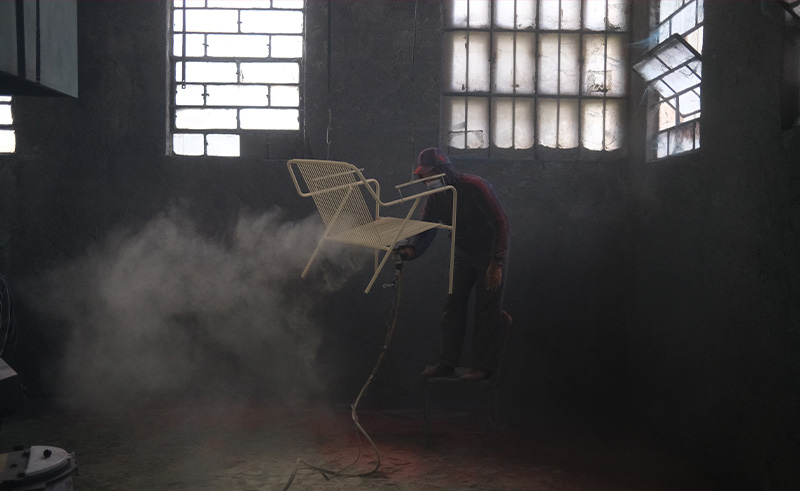 Given the factory’s industrial past, Local Industries mainly uses steel. “We adapted to a method of crafting that is shaped by both machines and artisans. That is what’s interesting about this space. It used to be a huge factory with heavy machinery that is now run by artisans,” Yousef Anastas explains. “This pushed us to explore different scales, something between architecture and furniture. Usually, the scale that’s relevant for an architect is too big for a designer, yet this environment enabled us to explore this in-between scale.”
Given the factory’s industrial past, Local Industries mainly uses steel. “We adapted to a method of crafting that is shaped by both machines and artisans. That is what’s interesting about this space. It used to be a huge factory with heavy machinery that is now run by artisans,” Yousef Anastas explains. “This pushed us to explore different scales, something between architecture and furniture. Usually, the scale that’s relevant for an architect is too big for a designer, yet this environment enabled us to explore this in-between scale.”
 Bethlehem is blessed with its olive wood and mother of pearls that adorn native designs that can’t be found anywhere else in the world. But, according to Youssef, the designs largely serve nostalgic cravings. “Our work is a reaction to the excess of nostalgic, folkloric practices oriented towards a capitalistic approach to material rather than an explorative,” Youssef says. “Bethlehem is known for its artisans, the heroes of any construction site. Our pieces are named after the artisans that made them. They are very personal, very human.”
Bethlehem is blessed with its olive wood and mother of pearls that adorn native designs that can’t be found anywhere else in the world. But, according to Youssef, the designs largely serve nostalgic cravings. “Our work is a reaction to the excess of nostalgic, folkloric practices oriented towards a capitalistic approach to material rather than an explorative,” Youssef says. “Bethlehem is known for its artisans, the heroes of any construction site. Our pieces are named after the artisans that made them. They are very personal, very human.”
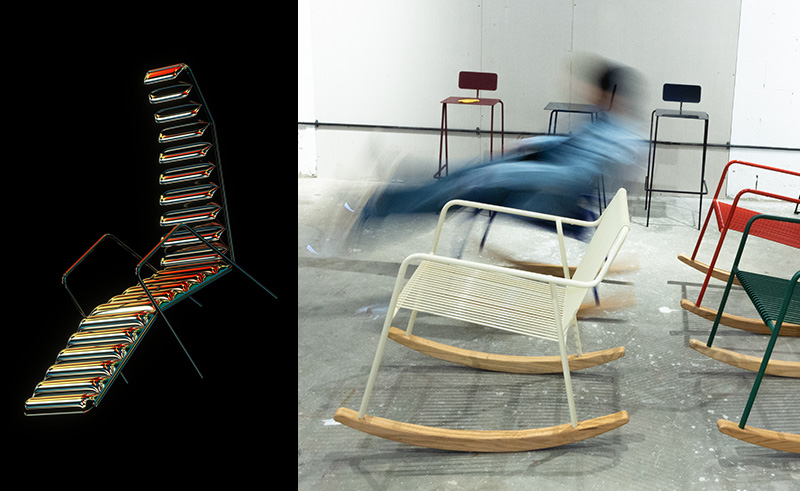
“Local Industries is part of a network, it can’t function in isolation,” Elias adds, leading up to the rest of the Wonder Cabinet, which now hosts the Local Industries showroom. “The whole idea is about creating synergies between these spaces, thinking of the city as a whole and across multiple industries.”
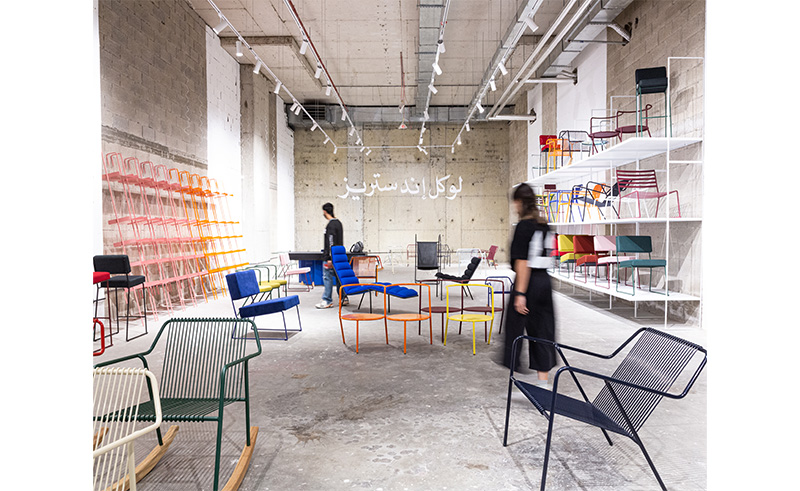 Wonder Cabinet, with its multifaceted offerings, serves as a crucible for creative expression. AAU Anastas’s experimental approach to Palestinian stone can be found against the Local Industries’ Mike Rocking Chair all while Radio Alhara broadcasts its underground tunes. Last June, it was inaugurated to encapsulate all of these initiatives. On the ground floor there’s AAU Anastas, Local Industries showroom and a theatre. Underneath, there’s the art residency as well as Radio Alhara.
Wonder Cabinet, with its multifaceted offerings, serves as a crucible for creative expression. AAU Anastas’s experimental approach to Palestinian stone can be found against the Local Industries’ Mike Rocking Chair all while Radio Alhara broadcasts its underground tunes. Last June, it was inaugurated to encapsulate all of these initiatives. On the ground floor there’s AAU Anastas, Local Industries showroom and a theatre. Underneath, there’s the art residency as well as Radio Alhara.
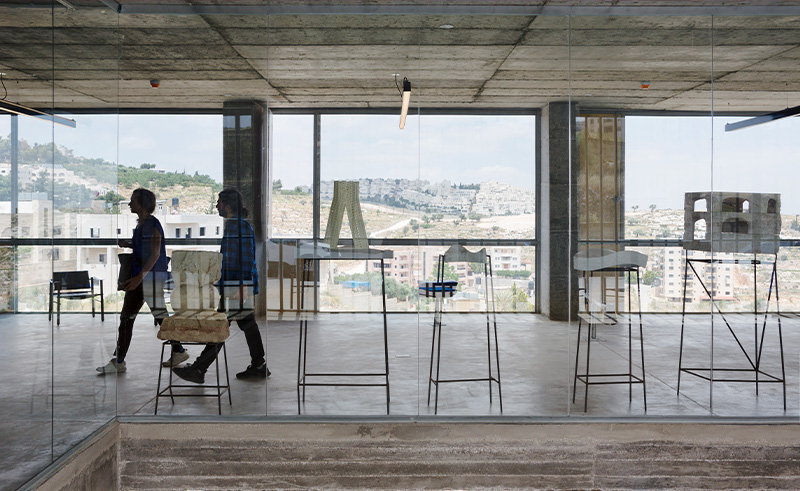 All three levels of the Wonder Cabinet are connected through voids and internal balconies. The main concrete skeleton was left bare, everything else is installed by artisans. “The space is as nude as possible to be shaped by the people using it. The goal is to have the practices of different artists, architects, engineers and artisans become so public that they belong to everyone,” Elias explains. As the Wonder Cabinet serves as a model for inclusive, community-driven design, it still grapples with pressing issues of sustainability and social justice.
All three levels of the Wonder Cabinet are connected through voids and internal balconies. The main concrete skeleton was left bare, everything else is installed by artisans. “The space is as nude as possible to be shaped by the people using it. The goal is to have the practices of different artists, architects, engineers and artisans become so public that they belong to everyone,” Elias explains. As the Wonder Cabinet serves as a model for inclusive, community-driven design, it still grapples with pressing issues of sustainability and social justice.
 “We’re not sure where design in Palestine is headed but what we know is that a fragmented territory creates a lack of critical discourse,” Elias continues. “This is why most young architects and design graduates work in the cultural field rather than architecture. We have a lot of trouble commuting in between cities in the West Bank but more importantly with Palestinians living in ‘Israeli’ territories, not to mention Gaza. The lack of discourse is what makes architectural practice very scattered. Our cities are very difficult to plan because they’re not defined. Even if they appear defined their boundaries are always in threat of being expropriated. The result? A lack of design. When you build to consume territory, architecture becomes a weapon of consumption, this creates a fragile environment that lacks any sort of unified discourse.”
“We’re not sure where design in Palestine is headed but what we know is that a fragmented territory creates a lack of critical discourse,” Elias continues. “This is why most young architects and design graduates work in the cultural field rather than architecture. We have a lot of trouble commuting in between cities in the West Bank but more importantly with Palestinians living in ‘Israeli’ territories, not to mention Gaza. The lack of discourse is what makes architectural practice very scattered. Our cities are very difficult to plan because they’re not defined. Even if they appear defined their boundaries are always in threat of being expropriated. The result? A lack of design. When you build to consume territory, architecture becomes a weapon of consumption, this creates a fragile environment that lacks any sort of unified discourse.”
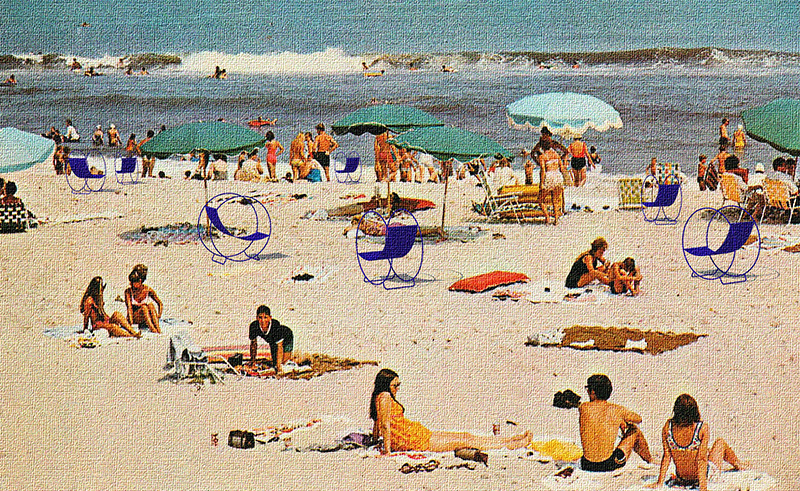 The reality Anastas shared is becoming more and more of a global issue. The true meaning behind defining spaces and buildings seems to have lost its value. In Bethlehem, under the steel sign of Wonder Cabinet, these designers and artists are trying to create a foundation for future experimentation. “A way of discovering our architectural language, one that’s reactive and leaves a sustainable trace,” Youssef adds.
The reality Anastas shared is becoming more and more of a global issue. The true meaning behind defining spaces and buildings seems to have lost its value. In Bethlehem, under the steel sign of Wonder Cabinet, these designers and artists are trying to create a foundation for future experimentation. “A way of discovering our architectural language, one that’s reactive and leaves a sustainable trace,” Youssef adds.
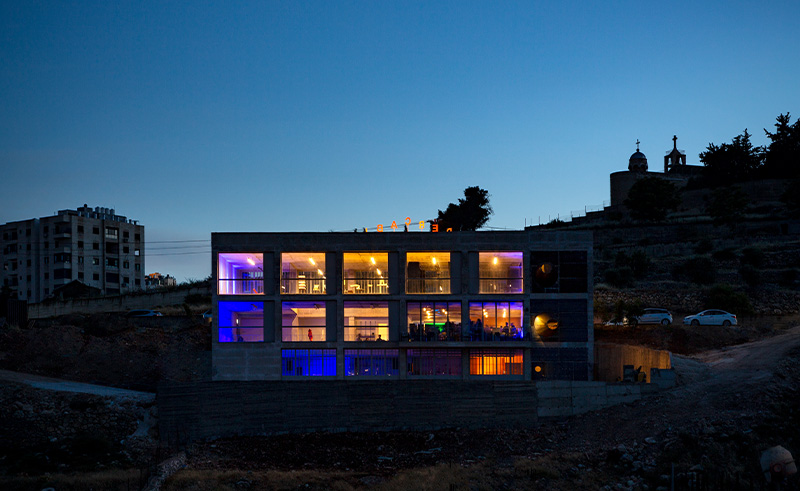 As the sun sets over the Karkafeh valley, casting its golden glow upon The Wonder Cabinet, one cannot help but marvel at the transformative power of creativity. In this humble abode lies the promise of a brighter, more vibrant future – one shaped by collaboration, innovation and the enduring spirit of human creativity.
As the sun sets over the Karkafeh valley, casting its golden glow upon The Wonder Cabinet, one cannot help but marvel at the transformative power of creativity. In this humble abode lies the promise of a brighter, more vibrant future – one shaped by collaboration, innovation and the enduring spirit of human creativity.
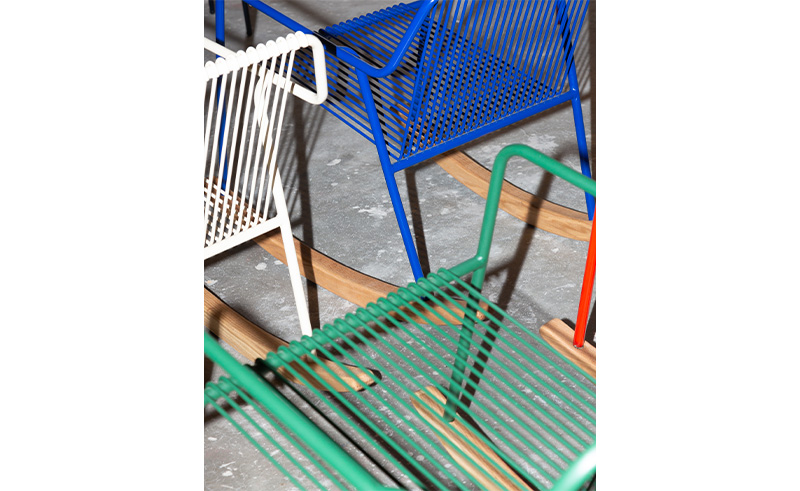 Away from the Wonder Cabinet, Local Industries has a warehouse in Amman, Jordan, a store in Milan, Italy and works with galleries in the Gulf, like Third Line in Dubai, UAE and Studio Seven in Doha, Qatar. Next up, Europe and the USA. Currently, a new Local Industries collection is being developed for mid-2024, through which the designers will explore more functions such as lighting but one thing will remain unchanged, it will also be made in Bethlehem.
Away from the Wonder Cabinet, Local Industries has a warehouse in Amman, Jordan, a store in Milan, Italy and works with galleries in the Gulf, like Third Line in Dubai, UAE and Studio Seven in Doha, Qatar. Next up, Europe and the USA. Currently, a new Local Industries collection is being developed for mid-2024, through which the designers will explore more functions such as lighting but one thing will remain unchanged, it will also be made in Bethlehem.
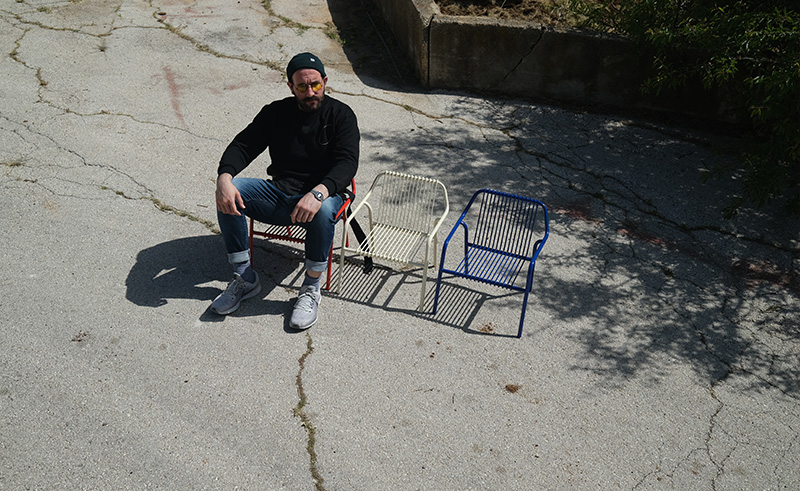 Beyond its physical confines, The Wonder Cabinet embodies a philosophy of inclusivity and resilience. As Local Industries, the heart and soul of the hub, extends its reach to distant shores, its roots remain firmly planted in the soil of Bethlehem.
Beyond its physical confines, The Wonder Cabinet embodies a philosophy of inclusivity and resilience. As Local Industries, the heart and soul of the hub, extends its reach to distant shores, its roots remain firmly planted in the soil of Bethlehem.
- Previous Article Italian-Palestinian Duo No Input Debuts Eponymous Electro EP
- Next Article Styled Archives: Egypt’s Fair Lady, Shwikar







